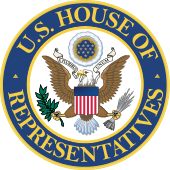 In US House of Representatives v Burwell (pdf), US District Judge Rosemary M Collyer has today upheld the challenge of the House of Representatives to a portion of the Patient Protection and Affordable Care Act (ObamaCare), ruling that the government had wrongly spent billions of dollars in the past two years to reimburse insurance companies for providing health coverage at lower costs to low and moderate income consumers. There is no mention in the judgment about the recovery of the unauthorised reimbursements, but the case plainly raises that question, which I have been discussing in a series of posts (I, II, III, IV, V, & V(a)) on this blog. There is another post to come in the series, and an addendum – but the implications on Burwell are too big to postpone.
In US House of Representatives v Burwell (pdf), US District Judge Rosemary M Collyer has today upheld the challenge of the House of Representatives to a portion of the Patient Protection and Affordable Care Act (ObamaCare), ruling that the government had wrongly spent billions of dollars in the past two years to reimburse insurance companies for providing health coverage at lower costs to low and moderate income consumers. There is no mention in the judgment about the recovery of the unauthorised reimbursements, but the case plainly raises that question, which I have been discussing in a series of posts (I, II, III, IV, V, & V(a)) on this blog. There is another post to come in the series, and an addendum – but the implications on Burwell are too big to postpone.
The judge set up the issue in this way:
This case involves two sections of the Affordable Care Act: 1401 and 1402. Section 1401 provides tax credits to make insurance premiums more affordable, while Section 1402 reduces deductibles, co-pays, and other means of “cost sharing” by insurers. Section 1401 was funded by adding it to a preexisting list of permanently-appropriated tax credits and refunds. Section 1402 was not added to that list. The question is whether Section 1402 can nonetheless be funded through the same, permanent appropriation. It cannot.
She said this about appropriation:
Authorization and appropriation by Congress are nonnegotiable prerequisites to government spending: “No Money shall be drawn from the Treasury, but in Consequence of Appropriations made by Law …” … [US Constitution] art. I, § 9, cl. 7; see also United States v MacCollom 426 US 317, 321 (1976) (“The established rule is that the expenditure of public funds is proper only when authorized by Congress, not that public funds may be expended unless prohibited by Congress.”). …
Appropriation legislation “provides legal authority for federal agencies to incur obligations and to make payments out of the Treasury for specified purposes.” … Appropriations legislation has “the limited and specific purpose of providing funds for authorized programs.” … An appropriation must be expressly stated; it cannot be inferred or implied. 31 U.S.C. § 1301(d) (“A law may be construed to make an appropriation out of the Treasury . . . only if the law specifically states that an appropriation is made.”). It is well established that “a direction to pay without a designation of the source of funds is not an appropriation.” … The inverse is also true: the designation of a source, without a specific direction to pay, is not an appropriation. … Both are required. An appropriation act, “like any other statute, [must be] passed by both Houses of Congress and either signed by the President or enacted over apresidential veto.”
Appropriations come in many forms. A “permanent” or “continuing” appropriation, once enacted, makes funds available indefinitely for their specified purpose; no further action by Congress is needed. … A “current appropriation,” by contrast, allows an agency to obligate funds only in the year or years for which they are appropriated. … Current appropriations often give a particular agency, program, or function its spending cap and thus constrain what that agency, program, or function may do in the relevant year(s). Most current appropriations are adopted on an annual basis and must be re-authorized for each fiscal year. Such appropriations are an integral part of our constitutional checks and balances, insofar as they tie the Executive Branch to the Legislative Branch via purse strings.
And she concluded:
Paying out Section 1402 reimbursements without an appropriation thus violates the Constitution. Congress authorized reduced cost sharing but did not appropriate monies for it, in the FY 2014 budget or since. Congress is the only source for such an appropriation, and no public money can be spent without one. See U.S. Constitution, Art. I, § 9, cl. 7 …
The Court will grant summary judgment to the House of Representatives and enter judgment in its favor. The Court will also enjoin any further reimbursements under Section 1402 until a valid appropriation is in place. However, the Court will stay its injunction pending any appeal by the parties. A memorializing Order accompanies this Opinion.
There will undoubtedly be an appeal, so there is a long way to go before we have a clear resolution of the issue. But if the final resolution is similar to the present judgment, the question of the recovery of the unauthorised reimbursements will have to be faced – no doubt, I will have to add to my series of posts on the Restitution to the Executive and the recovery of unauthorised State payments by considering whether US provides for a claim to restitution of unjust enrichment, because the recipients of the unauthorised payment have been unjustly enriched at the expense of the State.